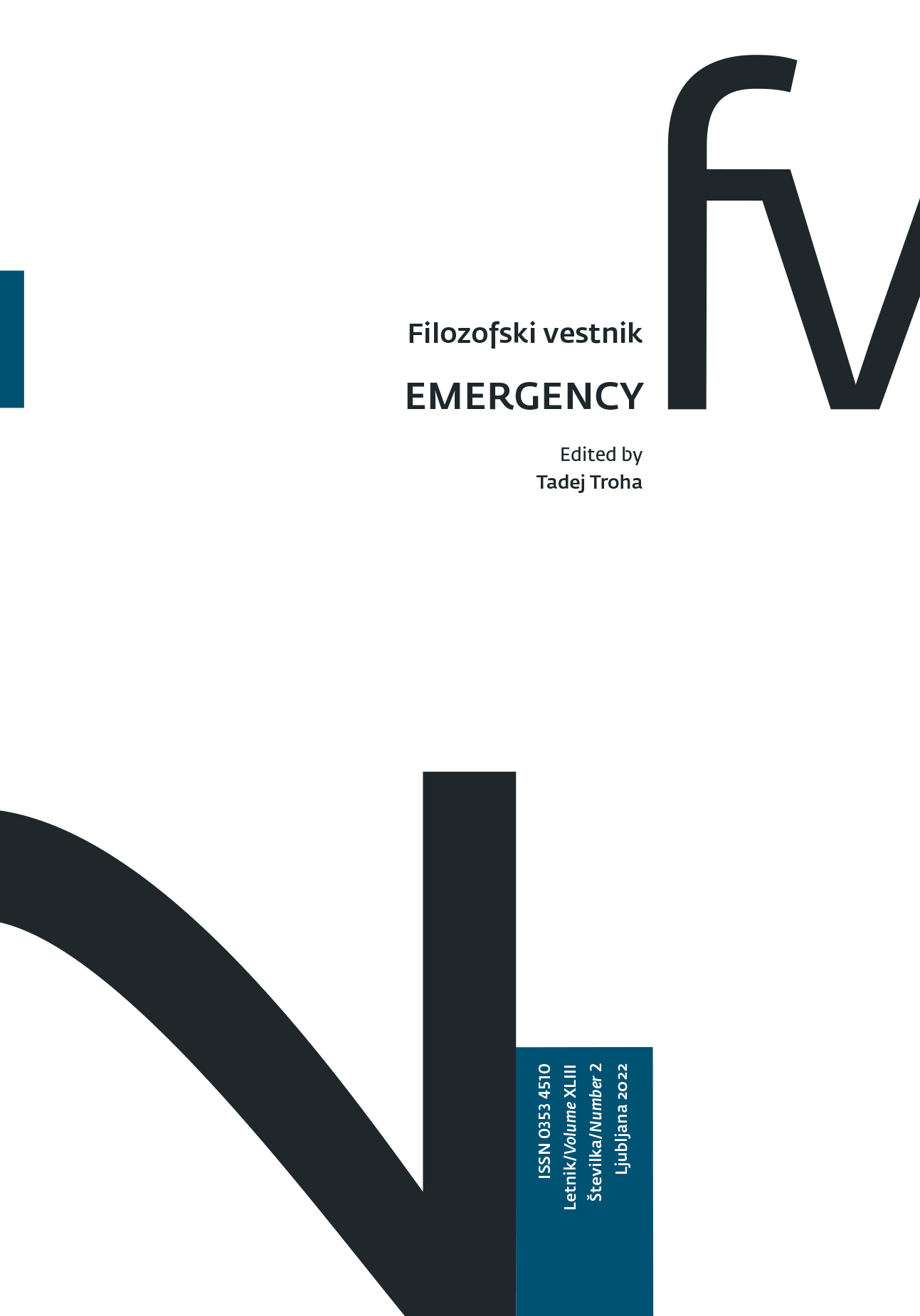Emergency Revisited
DOI:
https://doi.org/10.3986/fv.43.2.09Keywords:
climate emergency, climate change, crisis, pandemic, Covid-19, virus, AnthropoceneAbstract
In the first part of the article, the author analyses the last phase of the Covid-19 pandemic, which he terms “ex-communication”. A characteristic of this phase is not only virus”, but also the irrevocable transition to “living with the virus” but also the retroactive erasure of potentially valuable lessons from the pandemic for dealing with other crises. After outlining a new legal understanding of climate emergency in the second part of the text, the author concludes by focusing on the global warming debate in the 1970s. In doing so, he posits that we must search for the origin of all forms of “climate delay” (Lamb et al.) in the confluence of two contradictory tendencies during that period: the determination to stop global warming early and the techno-utopian desire to prevent the onset of an ice age by deliberately warming the atmosphere. The irony is that the caution offered as a way out of the contradiction not only failed to mitigate climate change but ultimately prevented the onset of an ice age for the foreseeable future. Such clear signals of the Anthropocene present us with a new choice, i.e. a choice between two versions of the self-evident, two versions of the impossible.
Downloads
References
Agrawal, Shelesh, Laura Orschler, and Susanne Lackner, “Long-term monitoring of SARS-CoV-2 RNA in wastewater of the Frankfurt metropolitan area in Southern Germany”, Scientific Reports, 11 (1/2021). DOI: 10.1038/s41598-021-84914-2
Breeze, Nick, “It’s nonlinearity – stupid!”, Ecologist, 3 January 2019, https://theecologist.org/2019/jan/03/its-nonlinearity-stupid.
Ganopolski, Andrey, Ricarda Winkelmann, and Hans J. Schellnhuber, “Critical insolation–CO2 relation for diagnosing past and future glacial inception”, Nature, 529 (7585/2016), pp. 200–203. DOI:10.1038/nature16494
Gilding, Paul, Climate Emergency Defined, Melbourne, Breakthrough, 2019.
Kellogg, William W., and Margaret Mead, The Atmosphere: Endangered and Endearing, Kent, Castle House Publications Ltd., 1975. Available at https://archive.org/details/in.ernet.dli.2015.132143/mode/1up.
Lamb, William F. et al., “Discourses of climate delay”, Global Sustainability, 3, (E17/2020). DOI:10.1017/sus.2020.13
Ledford, Heidi, “How common is long COVID? Why studies give different answers”, Nature 606 (2022), pp. 852–853. DOI: 10.1038/d41586-022-01702-2
Morens, David M., Jeffery K. Taubenberger, and Anthony S. Fauci, “A Centenary Tale of Two Pandemics: The 1918 Influenza Pandemic and COVID-19, Part II”, American Journal of Public Health, 111 (7/2021), pp. 1267–1272. DOI: 10.2105/AJPH.2021.306326
“Omicron fuels record weekly COVID-19 cases, but deaths ‘stable’”, UN News, 12 January 2022, https://news.un.org/en/story/2022/01/1109652.
Rich, Nathaniel, Losing Earth. The Decade We Could Have Stopped Climate Change, New York, Picador, 2019.
Spratt, David, “Reclaiming ‘Climate Emergency’”, Filozofski vestnik, 43 (2/2022), pp. 105–139. DOI: 10.3986/fv.43.2.05
Troha, Tadej, “Kako smo ekskomunicirali virus?”, Disenz.net, 12 October 2022, https://www.disenz.net/kako-smo-ekskomunicirali-virus/.
“WHO: 2022 can mark the end of COVID’s acute stage”, UN News, 29 December 2021, https://news.un.org/en/story/2021/12/1108932.
Downloads
Published
How to Cite
Issue
Section
License
Copyright (c) 2022 Authors

This work is licensed under a Creative Commons Attribution-NonCommercial-NoDerivatives 4.0 International License.
Authors guarantee that the work is their own original creation and does not infringe any statutory or common-law copyright or any proprietary right of any third party. In case of claims by third parties, authors commit their self to defend the interests of the publisher, and shall cover any potential costs.
More in: Submission chapter





